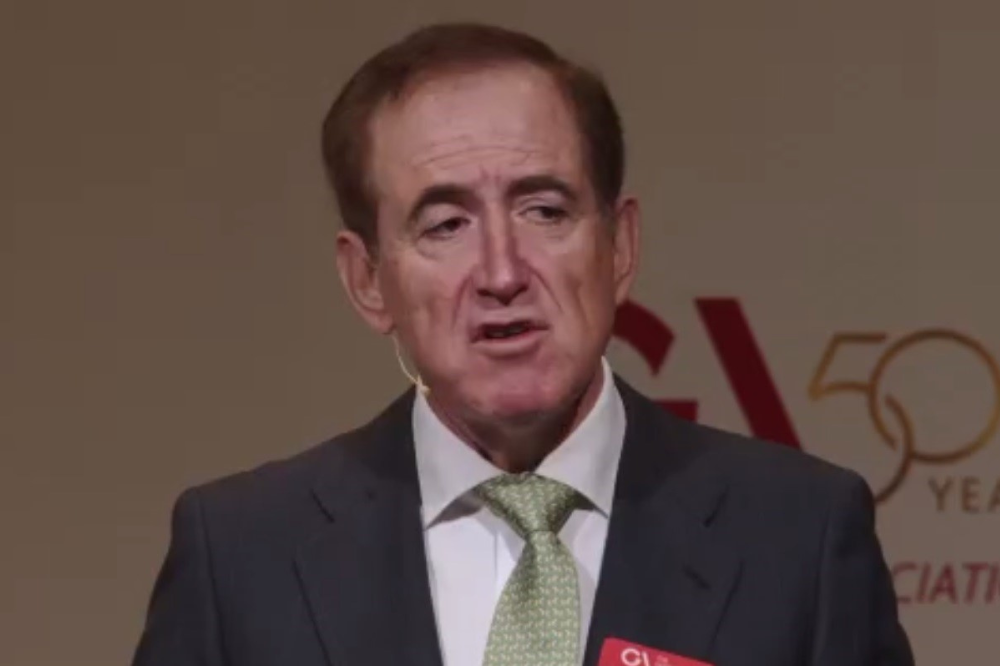Recognizing the swift advancement and transformative capacity of artificial intelligence (AI), Antonio Huertas, the chairman and CEO of MAPFRE, has advocated for comprehensive legislation concerning the ethical risks associated with this technology.
Huertas emphasized the potential of AI to be one of the most disruptive innovations in human history during his keynote address at the Geneva Association Summit 50, which commenced in Zurich, Switzerland, marking the organization’s 50th anniversary.
He highlighted the importance of establishing a regulatory framework to manage operational risks effectively and underscored the necessity of legislation addressing ethical concerns surrounding AI. Huertas stressed the imperative of fostering an ethical and responsible approach to the development of artificial intelligence to harness its benefits while mitigating potential risks.
The Geneva Association, a non-profit think tank comprising the world’s largest insurers, safeguards approximately 2.6 billion individuals globally, with assets totaling US$21 trillion under management by its 80 members.
Significance of AI in the Insurance Sector
Huertas conveyed to insurance executives that while the trajectory of AI’s evolution remains uncertain, its impact is poised to be profound. He cautioned that organizations failing to integrate AI into their operations risk falling behind in the competitive landscape.
Asserting that AI is not merely a passing trend but a transformative tool with far-reaching implications across various facets of life, Huertas highlighted its current influence on segments such as underwriting, claims processing, and fraud detection. However, the emergence of ChatGPT has brought to light the ethical considerations associated with AI deployment.
While generative AI holds the promise of automating repetitive tasks, enhancing underwriting precision, expediting decision-making processes, and elevating customer service standards, concerns have escalated regarding potential biases and breaches of data privacy.
Several industry giants, including Swiss Re, Chubb, and Munich Re, have disclosed their exploration of generative AI applications over the past year.
Striking a Balance between Regulation and Progress
Huertas expressed optimism regarding the productivity and employment prospects augmented by tools like ChatGPT. Nonetheless, he underscored the critical need for a robust regulatory landscape to steer the development of AI technologies.
Amid ongoing discussions in Europe to finalize the world’s inaugural comprehensive AI regulation, the AI Act, proposed in 2021, is poised to have substantial implications for AI system development and utilization within the European Union and beyond.
Huertas advocated for a measured approach, emphasizing the importance of experimentation to ascertain the boundaries of AI application, ensuring fairness and impartiality in its deployment.
While acknowledging the necessity of regulation, Huertas cautioned against excessive constraints, particularly in light of the escalating regulatory burden faced by insurers. He highlighted the evolving regulatory environment, noting a significant increase in directives governing the operations of European insurers over the past decade.
Huertas called for prudence in policymaking to avoid impeding the pivotal role of the insurance industry. He emphasized the significance of platforms like the Geneva Association in facilitating meaningful discourse on critical issues, including protection gaps, resilience, and social and financial inclusion.
Insurance Sector Navigating Transformation
Beyond AI, Huertas addressed the formidable challenges confronting the global insurance sector, including cyber threats, climate change, geopolitical tensions, and inflation, rendering the industry more intricate yet indispensable.
Amidst a backdrop of geopolitical unrest and economic volatility, Huertas commended the insurance industry for its steadfast support of economic resilience through prudent investments and adept risk management practices. He underscored the evolving regulatory landscape and the increasing complexity of the insurance business.
Huertas highlighted the urgent need to address the looming climate crisis, urging industry leaders to champion the energy transition and embrace sustainability initiatives. He called upon insurers to leverage their influence as financial guardians to drive meaningful change and contribute to a sustainable future.
In conclusion, Huertas urged industry stakeholders to reimagine the insurance sector, redefine its purpose, and collectively forge a legacy of positive transformation. Despite the formidable challenges ahead, Huertas emphasized the industry’s vast potential to effect meaningful change and navigate the evolving landscape successfully.






